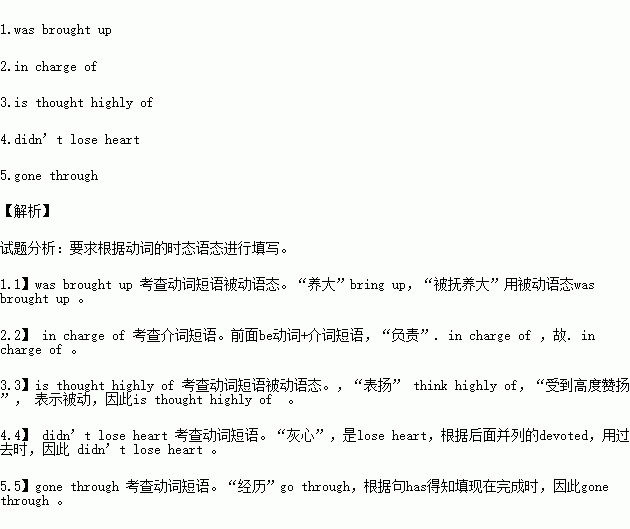题目内容
完成句子
1.李明是由爷爷奶奶养大的。
Li Ming _____ ______ _____ by his grandparents.
2.王老师负责这个班级。
Mr. Wang is _____ _____ _____ the class.
3.如今,他的表现受到老师和同学的高度赞扬。
Nowadays, his performance _______ _______ ________ _______ by his teachers and classmates.
4.他没有灰心,而是全身心地投入到了学习中去。
He ______ ______ ______ and devoted himself to his studies.
5.这个国家经历了太多的战争。
This country has _____ _____ too many wars.
练习册系列答案
相关题目


 ),并在其下面写出该加的词。
),并在其下面写出该加的词。
 ined word “grudge” in the first paragraph most probably means _________.
ined word “grudge” in the first paragraph most probably means _________. ter, what is the right way to calm down after being hurt?
ter, what is the right way to calm down after being hurt? erson who hurt you.
erson who hurt you.